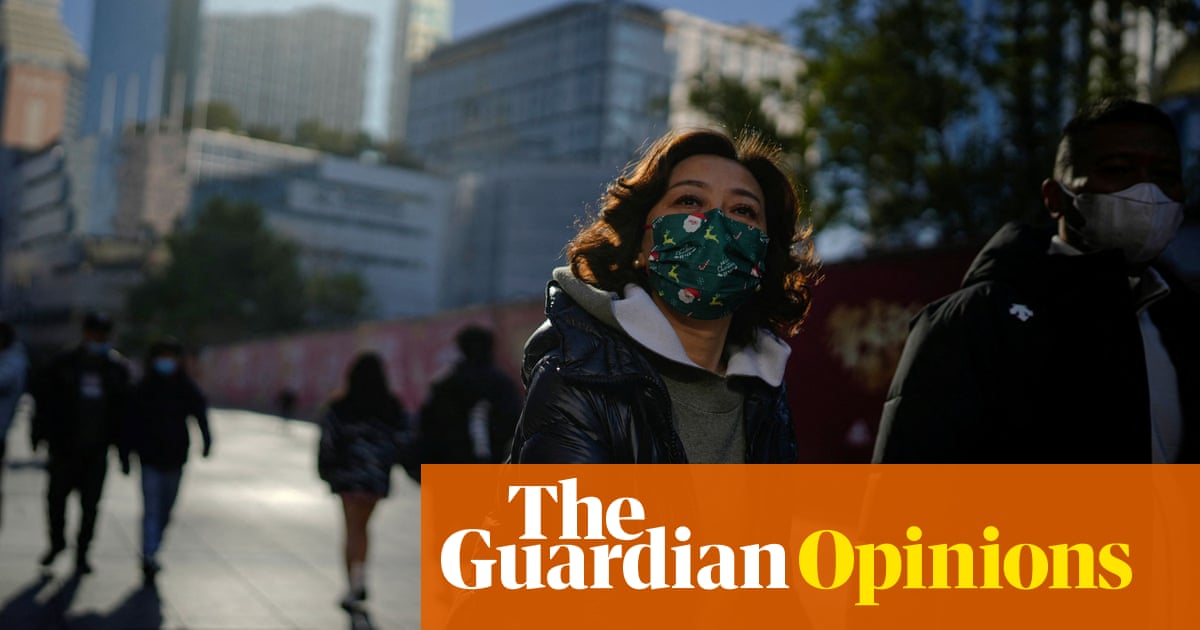
China’s citizens know this winter is a deadly one. But they do not know how deadly. According to leaked information, health officials estimated that about 250 million people – 18% of the population – were infected with Covid in the first 20 days of December and that as of Christmas Eve, the rate of infection was still rising.
Yet the authorities’ public pronouncements have been extremely limited and clearly misleading or downright ludicrous. The virus rips through the country and bodies wait days for collection – but on Monday, China reported 76 Covid deaths, of which all but two were in Hong Kong, not on the mainland. Relatives report loved ones dying of Covid but having something else recorded on the death certificate. Worse may be to come: while there are signs of younger people recovering in Beijing and Shanghai, the lunar new year is fast approaching, and with it the return of hundreds of millions of migrants, on planes, crowded trains and buses, to smaller towns and rural areas with far worse healthcare than big cities.
The government’s U-turn probably reflected concern about the economic impact (which the International Monetary Fund predicts will grow at or below global growth for the first time in decades), public discontent with zero Covid and the realisation that infections were surging despite its harsh rules. Its big mistake was neither initially pursuing a zero-Covid policy nor lifting it – others did so and kept mortality rates low – but shifting without warning, much mitigation or, apparently, preparation.
Other governments, including the US and the UK, have been largely forgiven by many of their citizens for deadly errors in their pandemic response. Chinese authorities are expert in rewriting history. Yet at least some citizens are radically reassessing their assumptions about the party-state and “authoritarian competence”. The reckless unlocking has made them more bitter about the apparently pointless restrictions preceding it. For many of the younger generation, this is their first experience of real hard times; for their elders, it may recall previous party follies. Xi Jinping has not only made it clear that he calls the shots in China, he was also directly and personally associated with the draconian measures. The Chinese leader struck an atypical note in his new year address when he remarked: “Ours is a big country. It is only natural for different people to have different concerns or hold different views on the same issue.”
It is absurd for Beijing to attack testing requirements imposed on inbound passengers by other nations; it still insists on a negative PCR test to enter the country, and is patently failing to offer full and accurate information on the pandemic’s progress. Sampling of passengers and wastewater from planes is sensible so that potentially dangerous new variants can be identified and monitored.
But for countries that have otherwise essentially given up on Covid-reduction measures (unlike, say, Japan), and which seem largely unconcerned about the known XBB.1.5 variant from the US, to insist on negative PCR tests from all passengers seems largely performative. The EU offer of free vaccines – though rejected by Beijing – was a more useful response. Given the disturbing increase in anti-Asian hate and violence since the pandemic began, politicians must not promote further prejudice that could endanger those of east and south-east Asian origin or heritage, and Chinese citizens who have already suffered at their own government’s hands.


